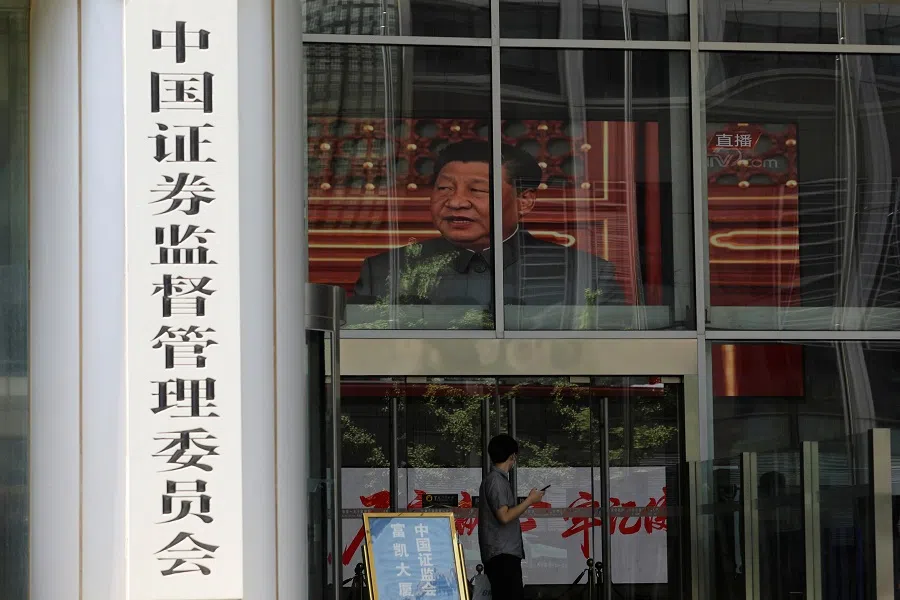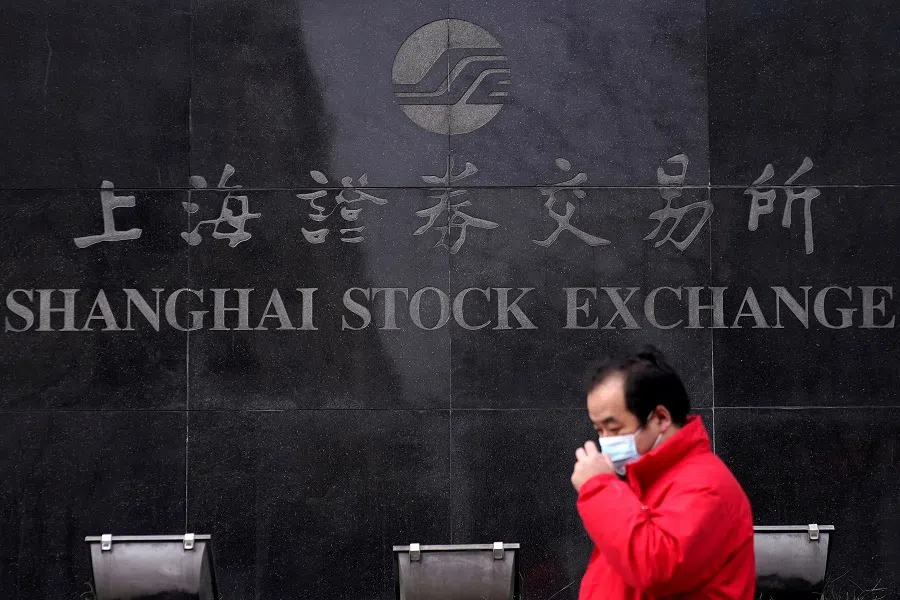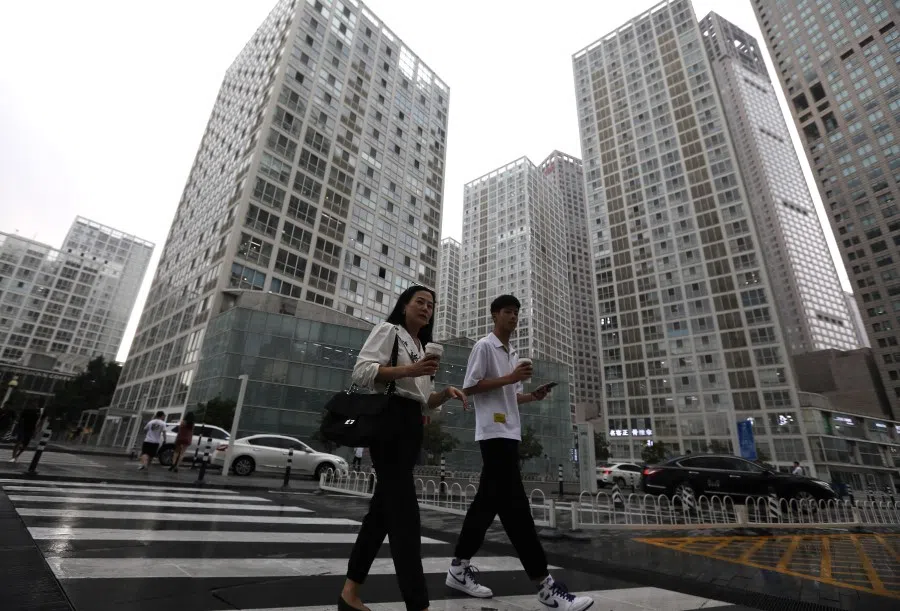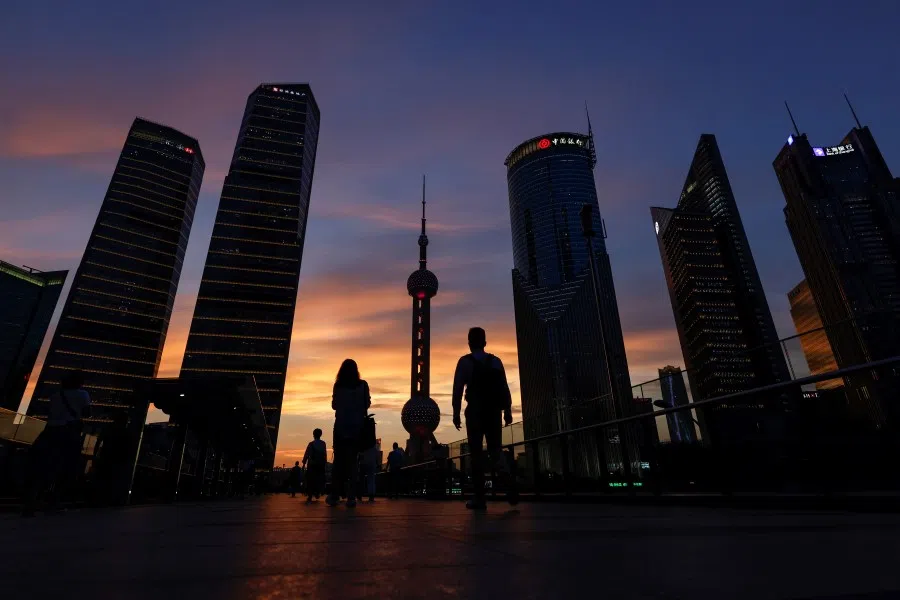Why China is setting up the Beijing Stock Exchange
With President Xi Jinping's announcement of a new Beijing Stock Exchange, innovation-oriented SMEs will benefit and Beijing's stock as a credible financial centre will also rise. Not only that, it is hoped that this will show China's resolve to continue pursuing the market economy as it continues its push for "common prosperity".

On 2 September, Chinese President Xi Jinping announced the setting up of a Beijing Stock Exchange. The news sent a wave of excitement through China and the global financial market. At the same time, it marks the start of Beijing's repositioning as a financial centre.
A statement from the China Securities Regulatory Commission said that deepening reform of the New Third Board and establishing a Beijing Stock Exchange would enable the capital market to serve innovation-oriented small- and medium-sized enterprises (SMEs) better. Also, it is a necessary move for implementing the national innovation-driven development strategy, and would help deepen capital market reforms under the current environment.
A springboard for top SMEs
The New Third Board's full name is the National Equities Exchange and Quotations (NEEQ) and it is located at Beijing's Financial Street. It is divided into three tiers - Base, Innovation and Select - and mainly coordinates the public transfer of shares of non-listed small and medium joint-stock companies and provides services for financing, mergers and acquisitions of non-listed joint-stock companies. As of 3 September, there are a total of 7,299 companies on NEEQ.
The Beijing Stock Exchange will be based on the Select tier of the NEEQ. The latter's basic rules will be retained while a registration-based public offering system will be piloted. It is envisaged that the establishment of the Beijing Stock Exchange will deepen the reform of the NEEQ, and improve the capital market's ability to serve SMEs. This would help ameliorate some of the SMEs' difficulties and high financing costs, and allow more investors to share the growth dividends of innovative SMEs. This is a long-term benefit to SMEs and the capital market.

The establishment of the Beijing Stock Exchange also implies that Beijing's position as a financial centre will be recalibrated.
A past entwined with history
Early in 1918, the Beiyang government had in fact already founded the first securities exchange in China, the (old) Beijing Stock Exchange, for the issuing of government bonds and stock trading. After Chiang Kai-shek set up his Nationalist government and made Nanjing the national capital in 1927, the old Beijing Stock Exchange was renamed the Beiping Stock Exchange and the centre for issuing bonds also moved south. However, the Beiping Stock Exchange lost its geographical advantage of being situated in the capital and its business deteriorated. Following the outbreak of the Second Sino-Japanese War, the Beiping Stock Exchange ceased operations in 1939.
After the People's Republic of China was founded in 1949, Beijing became the country's capital once more. In early 1950, the old Beijing Stock Exchange resumed operations. But due to strict governmental control, brokers incurred huge bad debts and cash flow problems. As a result, many brokers went bust. In 1952, the government announced the closure of the old Beijing Stock Exchange. The Shanghai and Tianjin stock exchanges were also closed during the same period.
In 1990, China established the Shanghai and Shenzhen stock exchanges in the southern region one after the other. On the other hand, stock exchanges were not established in major northern cities such as Beijing and Tianjin where there used to be stock exchanges.

In 2014, CCP general secretary Xi Jinping asked for Beijing to define and strengthen its "four centres" strategy for the city to be China's centre for politics, culture, international exchanges, and science and technological innovations; this is stated in Chapter 1, Clause 1 of the Beijing Urban Master Plan (2016-2035) released in 2017.
The establishment of the Beijing Stock Exchange to rebuild Beijing as a financial centre would help to strengthen private enterprises and economic growth in the Jingjinji Metropolitan Region (Beijing-Tianjin-Hebei) and the entire northern region of China.
Beijing's financial centre status overdue
The "four centres" does not include being a financial centre, which is important for Beijing's development. In fact, Beijing's financial sector is well developed. Beijing's financial institutions are definitely stronger than those in Shanghai and Shenzhen, with financial institutions such as the four state-owned commercial banks as well as financial regulatory institutions such as the People's Bank of China (PBOC), China Banking Regulatory Commission (CBRC), China Securities Regulatory Commission (CSRC), and China Insurance Regulatory Commission (CIRC) - collectively known as "one bank, three commissions" (一行三会) - having their headquarters in Beijing.

Due to this advantage, Beijing's banking sector assets are worth 28.6 trillion RMB (about S$5.9 trillion), which is close to one-tenth of the national total and 1.5 times Shanghai's figure of 19.2 trillion RMB, and 2.8 times Shenzhen's figure of 10.4 trillion RMB. However, Shanghai and Shenzhen have a clear advantage over Beijing in terms of the secondary capital market environment. Of the 142 state-owned securities brokerages in China, 31 have their headquarters in Shanghai and 23 in Shenzhen, while there are only 18 in Beijing; of 149 public mutual fund management companies, 66 are headquartered in Shanghai and 32 in Shenzhen, with 23 in Beijing.
That Beijing cannot match Shanghai and Shenzhen in these areas has something to do with the lack of a securities exchange in Beijing. Now, the establishment of the Beijing Stock Exchange will fill the gap in Beijing's financial sector, allowing Beijing to build its position as a financial centre. In fact, in recent years the Beijing government has been working to elevate the NEEQ to a securities exchange to build a China-style "Nasdaq", to attract the tech companies trying to get listed in the US to come back and give fresh impetus to Beijing's economic development.
Recently, following the urban-rural gap and east-west gap, the growing economic gap between the north and south has become another topic of discussion in China. The establishment of the Beijing Stock Exchange to rebuild Beijing as a financial centre would help to strengthen private enterprises and economic growth in the Jingjinji Metropolitan Region (Beijing-Tianjin-Hebei) and the entire northern region of China.

Also, establishing the Beijing Stock Exchange once again shows China's resolve to continue pursuing the market economy. Recently, the authorities have highlighted the idea of "common prosperity", clamped down on capitalist monopoly and inappropriate pursuit of profits, and cleaned up the messy entertainment industry. In particular, some comments have played up the dangers of capitalism and set up the rich and poor against one another, with combative slogans like "make the capitalists tremble", leading to concerns about the direction of China's policies.
The Beijing Stock Exchange itself is a product of the deepening and broadening of China's market economy. It will be structured like a company with shareholders, directors, CEO, and supervisory board. It will draw on the experience of Nasdaq and other mature international exchanges, showing that China will continue to deepen reform and be more open, and will not reject the market economy or go back to the old ways of "killing the rich to help the poor".
Related: 'Winner takes all' no more: China is ready to build the socialist regulatory state | Building a moral and prosperous Chinese society: Prelude to a social revolution in China? | Celebrities scrubbed from the Chinese internet: Victims of China's social revolution? | China's crackdown on cryptocurrencies: Trade-offs between stability and innovation | China's tutoring crackdown: Is the Chinese government prepared for its consequences?





